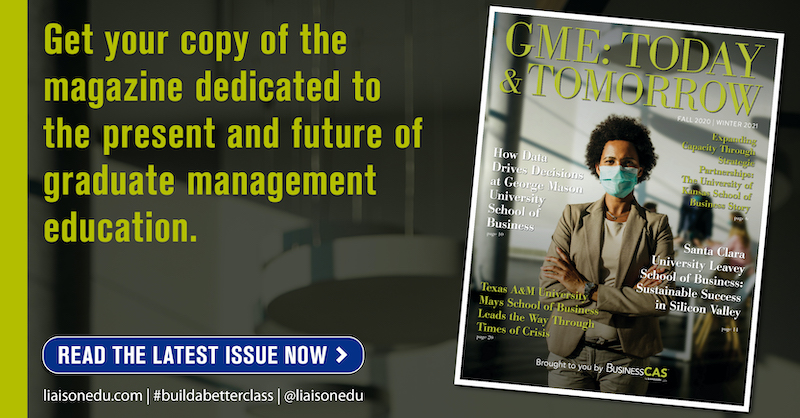
The GameStop story introduces new disruptions to old systems and provides interesting learning opportunities for business schools.

Stephen Taylor writes about the ever-evolving GME landscape and provides insights for business programs looking for innovative strategies and practices as they recruit, enroll and educate the next generation of MBAs. See his recent article on business school rankings here.
Proliferation of mostly unrecognizable acronyms within an industry is often a marker of a market with exceptional complexity. In business education circles, we might suggest that AACSB and GMAC work closely with the M7 and P&Q on promoting solutions to RC/EC issues for students with I20s. We might have also said something about GME, an acronym that stands in for Graduate Management Education in the context of college and university-based business education for graduate students. As we all know, however, this week has introduced an entirely new take on GME: GameStop.
The drama of the Reddit-GameStop-Hedgers issue, which has been described simultaneously as a David v. Goliath story and a cautionary tale for large institutions and internet virality, has suddenly taken up space in Graduate Management Education as a new, perhaps more common, definition for the acronym GME. So what impact does this have on MBA programs and their MS counterparts? Very little, at first glance; one big lesson that our GME can take from Wall Street’s GME, however, is that anything can become a viral catalyst for change if we let it.
Business-related “hot topics” bubble up to the media surface regularly, covering everything from far-reaching scandals like the one at Enron to discipline-specific issues like the current GME-short-breaking story. Should these moments be included in curricula as a way to highlight practical applications of theory? How should program leaders include these kinds of high-profile viral business stories in the curriculum? In this way, using viral moments as a catalyst for change is as simple as asking faculty to include discussion on a specific topic or working with faculty to solicit case studies or other materials for students.
More comprehensive change, however, can be found in the answers to questions about the broader subjects found in these stories. The most common media theme around the Wall Street GME story has been that small groups can band together to harness their collective strength and work against large, established institutions. Perhaps this means a school needs to take extra care to present themselves as more than just a big brand, but as a community of researchers, teachers, staff, alumni and business leaders. Maybe the analysis of a viral story can be a call to action for curriculum, which needs to ensure that students deeply and thoroughly understand the complexity and risk calculus associated with financial instruments, for example. Should programs include more core curricular requirements around finance? Social media? Should programs have formal instruction in the most common social media platforms and how they’re used? These kinds of questions can drive lasting, meaningful change in a program, and can help to open conversations with stakeholders about the normative role of management education.
Unless you work for a hedge fund, Wall Street’s unexpected tango with the day traders of Reddit has been exceptionally interesting to watch. But far after the story has fallen from our memories, the sentiment it leaves behind can be one of “innovation” if we approach it carefully. The pressure to innovate within schools of business is exceptionally high, so if nothing else, we can look to the momentary acronym-sharing as a reminder that our roles are partially defined by our ability to find innovation inspiration in unexpected places. Onward, GME (Graduate Management Education, that is)!

